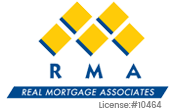What is a HELOC?
A Home Equity Line of Credit (HELOC) is a type of revolving line of credit that allows homeowners to borrow against the equity in their homes. Here’s how a HELOC works:
- Revolving Line of Credit: A HELOC is a revolving credit line, similar to a credit card. It means you have a set credit limit, and you can borrow and repay funds as needed, up to that limit, during the draw period.
- Home Equity-Based: The amount you can borrow with a HELOC is based on the equity you have in your home. Equity is calculated by subtracting the outstanding mortgage balance from the current market value of the property.
- Interest and Repayment: During the draw period, which typically lasts around 5 to 10 years, you can access funds and only pay interest on the amount you borrow. As you repay the borrowed amount, the credit becomes available again for future use. After the draw period, you enter the repayment period, during which you can no longer borrow and must start paying both principal and interest on the remaining balance.
- Interest Rate: The interest rate on a HELOC is usually variable and tied to the prime rate. It means that the interest rate can fluctuate over time based on changes in the prime rate.
- Flexibility: HELOCs offer flexibility, allowing you to access funds for various purposes, such as home renovations, debt consolidation, education expenses, or other major expenses.
- Open-Ended: HELOCs are open-ended, meaning you can pay off the balance at any time without any penalties. Once you pay off a portion of the borrowed amount, that portion becomes available again for future borrowing.
HELOCs can be beneficial for homeowners who have built up substantial equity in their homes and need access to funds for different purposes. However, it’s essential to use HELOCs responsibly and avoid accumulating excessive debt. Understanding the terms, interest rates, repayment obligations, and potential risks associated with a HELOC is essential before deciding to take one out. Consulting with a financial advisor can provide valuable insights and help you determine if a HELOC aligns with your financial goals.
